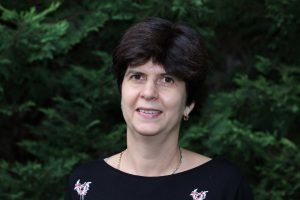Spotlight on keynote speakers at this year’s conference
This year’s IATEFL Conference took place in June virtually, but that didn’t lessen the impact of the plenary speakers. If you weren’t able to take part – or did, but would like a refresh – we asked each of them to sum up the topic of their talk for EL Gazette readers.
Judit Kormos is the director of studies for the MA TESOL Distance programme at the Department of Linguistics and English Language at Lancaster University in the UK. She is particularly interested in dyslexia in second-language learning.
“In my plenary at the 54th IATEFL conference I show different ways of supporting students with specific learning difficulties (SpLDs) in learning additional languages. In the first part of my talk, I discuss the challenges language learners with SpLDs might experience in a classroom in face-to-face settings and online in a digitally mediated environment.

“In the next part, I demonstrate how accessible educational design can assist students in these pandemic times and what adjustments we can make in our teaching to create an inclusive language learning environment. In the second part of the presentation, I give suggestions for the use of a wide variety of learning strategies and techniques that can be applied to support all learnersinaninclusive,educationalcontext. The focus in this part is on raising students’ phonological awareness, improvi22ng their spelling, writing and reading skills, and expanding their vocabulary knowledge. I also share examples from some of our newly developed comics tools from the CIEL project (https://ciell.eu/) that can assist students with text comprehension and composition writing, as well as resources from the ENGaGE digital task bank (http://engage.uni-miskolc.hu/ index.php/self-study-course/).
Kieran Donaghy is an award-winning writer, international conference speaker and teacher trainer. He has written a number of books for students and teachers of English, and runs the School for Training in Barcelona.
“In my IATEFL plenary talk, Embedding a culture of empathy in English language teaching, I attempt to show that empathy is central to successful language learning and to making language teaching a more compassionate and fairer profession.

“I start by exploring what empathy is, its neurological foundations and its three main components: cognitive empathy, affective empathy and empathetic concern. Next, I argue that empathy in individuals is essential to healthy social and emotional functioning, and contributes to the enrichment of civic society and education.
“I then draw on research to support my argument that empathy is particularly important in language education, given that positive relationships between the teacher and learners and among learners, and positive group dynamics are vital in contemporary language classrooms, with its focus on communicative competence, cultural diversity and the centrality of social interactions.
“I also look at hindering factors which may make it challenging to embed a culture of empathy in the profession. In the final part of the talk, I explore how we can explicitly develop empathy as a skill among teacher trainers, and teachers and learners. I explore how a variety of techniques and approaches from diverse sources, such as cognitive behavioural therapy, humanistic education, literature, drama and the visual arts can be used to help to foster empathy in language education.
Thom Kiddle is director of the Norwich Institute for Language Education (NILE), chair of Eaquals board of trustees, treasurer and a founding director of AQUEDUTO (The Association for Quality Education and Training Online) and webmaster for the IATEFL Testing, Evaluation and Assessment SIG. He has been involved in language teaching, language assessment and educational technology for 25 years.
“In this talk, I attempt to draw the three strands of language teaching, language assessment and educational technology together to consider what trends, opportunities and challenges were emerging before the pandemic began and what changes have been accelerated by it.

“I believe that the language teacher’s empowerment is central to navigating a principled path through the multiple dimensions of teaching, testing and technology, and argue that certain aspects of this are under- valued in teacher professional development and unchallenged in accepted practices. I hope to bring these to light and to life with a presentation which incorporates video, poetry, circus skills and a few test questions!”
IATEFL 2022 will be held 17-20 May 2022.






